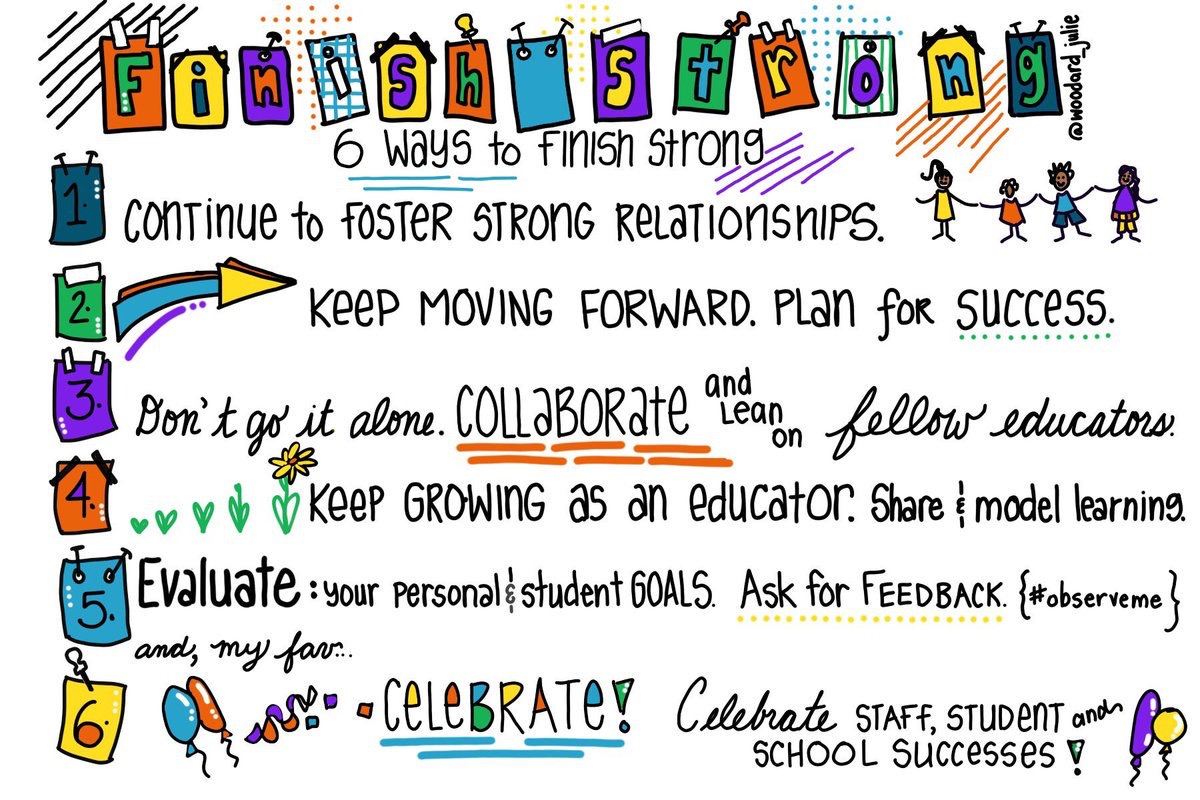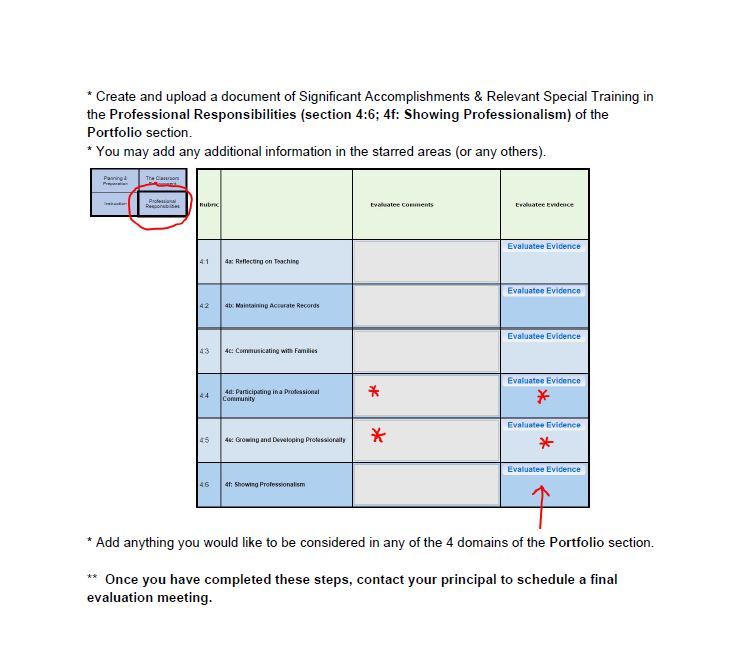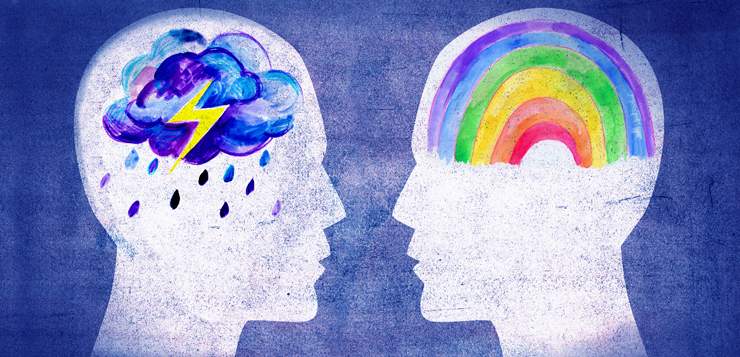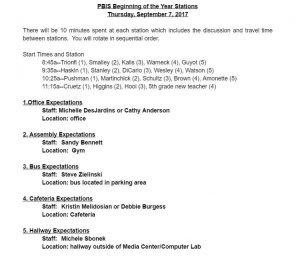Coming soon to Arno…
June 12
Board meeting honoring PTA 7:00
Ad council 9:00
June 13
K Picnic
Half-day- Dismissal 11:40
Classroom placement/Common schedules per schedule below
June 14
5th Grade Graduation 9:00
Half-day Dismissal 11:40
June 15
LAST day of school!!
Half-day dismissal 11:40
June 16
Teacher Final Day please complete and turn in checklist
Code of conduct meeting 10:00
***Office closes June 23

Things have certainly become interesting lately. We have seen some uptick in behaviors, and certainly the thoughts towards June are occupying many of our young minds. The constant that is always yet present is your consistent drive to excellence, and sometimes it takes more effort this time of year, but your drive and passion for teaching continues to show our students a shining example. Finish strong in these final days of the year, and if you are having any concerns, apprehensions, difficulties, no matter the issue- please know that my door is always open to address your needs. Working together is the way to continue to move Arno forward… Have a great wrap up to the school year!
From the PTA
Congratulations to our Graduating 5th Graders as they head off to new adventures and beyond in Middle School and to our Kindergarteners as they travel down the hall to 1st Grade!
Make sure to “Save the Date” for our Fun Run next year! This event will take place on Friday, September 29th. If you would like to volunteer for our Biggest Fundraiser of the year, please contact us and let us know. We welcome anyone that would like to be part of our planning team to make this event a HUGE SUCCESS like last year!
The PTA wishes everyone a safe, fun-filled Summer! We hope that your school year rocked!
YEAR END TO-DO LIST
Please take a look at the Year End Checklist page at the top of the blog for all of the to-dos as we wrap up the year. As final walkthroughs are completed and final testing recorded, please check the calendar and schedule a time that we can meet and have our final evaluation meeting!
EndoftheYearChecklist2017.doc-148eig2
MTSS Survey Link
Please take the time to respond to the MTSS survey for our building. We will use the district data to improve our approach both at the building level and at the district level of support.
Math Survey Link
Please take the time to respond to the MTSS survey for our building. We will use the district data to improve our approach both at the building level and at the district level of support.
Class Lists
Just a reminder of the schedule below for class list review. Please come to the meeting with your lists completed.
| Grade Level | Time |
| Kindergarten | 12:45 |
| 1st Grade | 1:15 |
| 2nd Grade | 1:45 |
| 3rd Grade | 2:15 |
| 4th Grade | 2:45 |
| 5th Grade | 3:15 |
From the District:
- AP Citizens Civic Fund – Annual Pizza, Wine & Beer Tasting – Raising funds for Parks & Historical Home in AP – June 15 – See attached and enjoy this fun event!
- Classic Cars & Custom Bike Show, Raffles, Music & More – Downtown AP – June 28 – see attached!
- Downtown AP Farmer’s Market Coming Soon!
- Allen Park Jaguars YOUTH FOOTBALL CAMP – July 25, 26 & 27
- Allen Park CHEER TEAM GOLF OUTING – August 27 – Consider playing, attending the dinner or sponsoring the event in various ways!
STAGES UPDATE
You have received a document outlining the steps needed to complete elements in the STAGES system for the final evaluation. Please let me know if you have any questions!
**Reminder — if you are using NWEA for your evaluation data, you will find the scores in the report titled “Achievement Status and Growth Report: Projection or Summary.” Make sure you select the Growth Comparison Period as Fall 2016 through Spring 2017. I am happy to help you if needed!
If you are using DRA, please be sure your data is entered into MISTAR DnA as soon as you finish testing!
PreparingtocompletefinalevaluationinSTAGES-27fna9f



PBIS Stations
We are a bit away at this point, but plans are always in the works for next year. Please see below for the plan on day 2 of school in the fall for our new PBIS learning stations. Let us know what questions you have, or ideas moving forward. Thank you to our chairs Lisa and Katie and all who have participated this year on the PBIS team for the hard work to maintain a positive climate for kids and teachers at Arno!!
PBISBeginningoftheYearStations-15qufy6
NGSX OPPORTUNITY
Please see the message below from Phil. If you are around this summer, I wold definitely encourage you to consider participating in this training. It is a big shift in science instruction and the experience is so valuable!
Good morning, teachers!

INTERESTING ARTICLE
How to Fight Stress with Empathy
We often use the words “I’m stressed” casually in our everyday conversations, with little acknowledgment of the adverse effects of stress in our lives. But evidence suggests that we should be much more concerned about our stress levels than we are.
The Center for Disease Control found that 66 percent of American workers say they lie awake at night troubled by the physical or emotional effects of stress, and stress has been linked to many health problems, including obesity and heart disease—especially among low-income Americans. Stress not only affects us, but it can impact those around us, too, especially our children.
Variables That Determine How Stress Affects Us
Not all stress is bad, of course. Stress can also be invigorating or lead us to care about the welfare of others, if channeled in the right way. Nor is it always avoidable—many of us have lives with stressors beyond our personal control. But, psychologists have identified key variable that determine whether stress ultimately affects us positively or negatively:
- Our perception of stress
- The meaning we attach to it
- Our ability to cope with uncertainty and ambiguity
- The degree of control we have over the circumstances that produce the stress
In my experience, many people don’t recognize the role that their own perceptions, fueled by biases, play in exacerbating stress. By becoming more aware of our biases in perception, we can learn to focus on the truthful assessment of situations we encounter without distorting reality, thereby remaining calm, energetic, creative, and resilient when faced with highly stressful situations.
As a psychologist, I’ve worked with countless people who suffer from debilitating stress in their lives, often without recognizing how it impacts their health, relationships, and work lives. In my book, The Stress Solution, I provide an outline of the research-based steps I often give to my clients so that they can learn to manage stress in more positive ways.
To some extent, we can reduce stress by simply taking good care of ourselves through getting proper sleep, exercise, and nutrition. But, to really thrive in the face of stress, we should also work toward finding meaning or purpose in our work or other activities, and toward nurturing our positive relationships using empathy.
Leading with empathy can help those around us to be sources of support in our lives and reduce the likelihood of interpersonal conflicts.
Why use empathy? Because when we give and receive empathy we produce the near magical neurotransmitter oxytocin, which creates a sense of trust and cooperation—keys to negotiating and resolving conflict, whether between couples, communities, states, or countries. Leading with empathy can help those around us to be sources of support in our lives and reduce the likelihood of interpersonal conflicts.
Of course, it may be difficult to imagine feeling empathic when we are angry or tired. Think of a couple reuniting after a long day of work. Without first connecting through empathy and love, they may end up fighting over whose turn it is to do the dishes or simply withdrawing from each other, depriving themselves of the comfort that closeness brings.
Empathy Practice: Listening
How to avoid this? By practicing empathic listening with one another instead of falling on our usual patterns.
Too many of us listen to each other with half an ear, preoccupied and not fully present. We tend to listen with bias, making up our minds before we hear the full story, or to connect everything the other person says to our own experience without considering their perspective. We then make well-meaning comments that do not honor the uniqueness of the other’s person’s thoughts or feelings, such as, “I know what you’re going through.” Or, we get distracted by the noise of our internal voices and end up judging or second-guessing one another, which keeps us from really listening. Without truly listening, we run the risk of losing connection and making false assumptions.
What does empathic listening look like? It requires giving up a self-centered view of the world, focusing and paying attention, and setting aside biases or distorted thinking to connect with another person’s emotions. It means coming to your interactions with a true desire for connection and understanding, rather than winning.
Empathy is easier when we understand some of the stories we carry inside about who we are and learn to see how it clouds our reactions and judgments. If we have been humiliated in childhood or starved of attention, we may have trouble trusting others or feeling comfortable with intimacy. Couples who fight a lot often carry stories like these about themselves—perhaps feeling unworthy because of past hurts—that make it hard for them to be present and more vulnerable to their partners.
But, when people learn to respond with empathic listening, it can help them to shift from their stories and distorted ways of thinking. They become less likely to take something done or said personally, assume that other people hold similar attitudes to one’s own, or focus only on the negative instead of the positive in a situation.
7 Ways to Increase Your Empathic Listening Skills
Here are some of the recommendations I make to help people enhance their empathic listening and their ability to express empathy:
- Reflect what others say to you by either repeating or rephrasing what someone has said. It sounds like you had a lot going on today at work, right?
- Emphasize the feeling behind the words and check on the accuracy of your interpretation. You sound exhausted. Is there something affecting you at work?
- Pay attention to body language. You look tense. What can I do to help?
- Ask open-ended questions, to show you are interested in their perspective. How was your day at the office? Not, Why are you so late?
- Slow down and take a deep breath to calm yourself if you are feeling your buttons being pushed or if you are absorbing someone else’s tension. Slowing down your emotional reactions can be helpful for truly tuning in to another person and not being tripped up by your own reactivity. Some people have found that mindfulness meditation, self-compassion, or compassion training can help with this kind of emotional regulation.
- Avoid snap judgments. Empathy means seeing human beings as always changing and evolving; so you don’t want to judge and shut the person down.
- Learn from the past. If you are unaware of your own biases and often jump to conclusions, you will have trouble truly listening to another person and perceiving them accurately. Know your personal biases and use cognitive reframing—a technique that involves reconsidering your interpretations of events, something I describe in detail in my book—to help you reevaluate what’s actually happening in a given conflict or situation versus what you’re telling yourself at the time. By engaging your brain in this way, you can rewire it to be less emotionally triggered and to calm your nervous system.
Avoid snap judgments. Empathy means seeing human beings as always changing and evolving; so you don’t want to judge and shut the person down.
Learning to communicate with empathy can go a long way toward building more positivity in your relationships and reducing your stress. If we all focused more on listening and understanding each other, the world would be a lot less stressful—and a lot happier—place to live.






